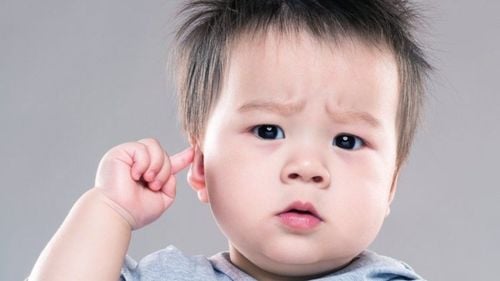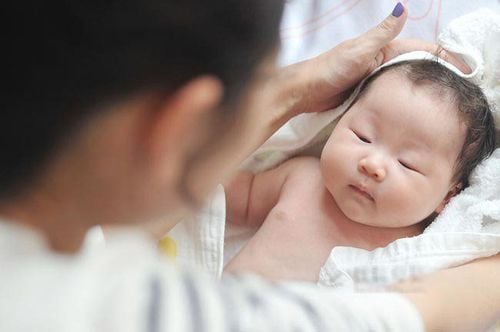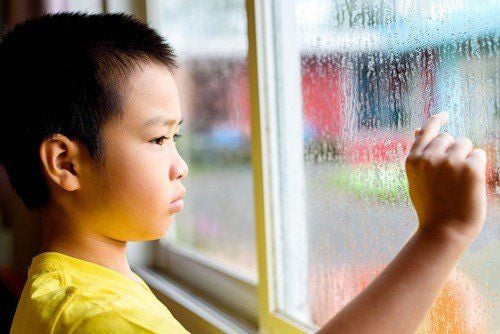This is an automatically translated article.
The article was professionally consulted by Specialist Doctor I, Resident Doctor Dang Thi Ngoan - Pediatrician - Neonatologist, Department of Pediatrics - Neonatology - Vinmec Ha Long International General HospitalNewborn hearing screening is part of a newborn screening program designed to test newborn hearing after birth.
1. Role of newborn hearing test
Hearing is the foundation for a child's future learning, so it's important to spot and identify any hearing-related problems as early as possible. Therefore, newborn hearing screening is very important and should be done in hospital.Currently, in Vietnam, hearing screening is part of the newborn screening program. Children will be examined periodically for hearing tests at the hospital, before the child is discharged home. If you are not sure that your baby has had a hearing test after birth, please contact the hospital to inquire.
Or if a baby is born in a hospital without a postpartum hearing test, parents need to ask the doctor about having a hearing test for the baby, preferably in the first month.
This is still very useful even if the child is not at risk of hearing loss, because hearing loss is a common birth defect that occurs in even healthy children. Infants in the intensive care unit and children with mild hearing impairment are at higher risk for hearing loss.
Experts say that children who are tested for hearing after birth, based on that, doctors diagnose and treat appropriate hearing loss before 6 months of age, giving very good treatment results. Meanwhile, children who are not detected and treated early can have delays in speech and language skills, social skills and learning.
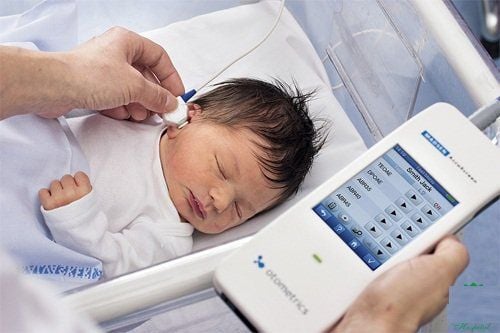
2. How is the newborn hearing test done?
There are two types of commonly used postpartum hearing tests for babies, which are the Automated Auditory Brainstem Response (AABR) and the Otoacoustic Emissions (OAE) test. The test takes only 5-10 minutes for each test and is completely painless. Newborns can sleep while the test is being performed.Automated Auditory Brainstem Response (AABR): A nurse or technician will place computer-connected sensors on the child's head. Tiny sounds are transmitted through small earphones, and the sensor measures brainwave activity if the child responds to these sounds. Acoustic Emission Test (OAE): This is a postpartum hearing test that measures sound waves in the inner ear. The screener places a small device in the child's ear and makes a soft, clicking sound. This small device is connected to a computer and helps to record the child's ear response to the sounds produced by the device. These two types of tests are done in most hospitals, or some hospitals may conduct prescreening with OAE and follow-up with AABR in case the child has a bad test result.
3. Newborn hearing test results
3.1 The child does not pass the newborn hearing test If the child does not pass the infant hearing test , it does not necessarily mean that the child has a hearing problem, however, the child should be Check further to determine. Parents need to schedule a re-test for their baby's hearing problems within the first month after birth.Factors that can affect a baby's first postpartum hearing test results are:
There is fluid in the baby's middle ear There is debris (eg vernix fungus) in the ear canal Examination room and the surrounding area is too noisy or noisy Babies move and cry at check-ups Many babies fail at their first newborn screening but have better results at the next check-up. If a child does not have a good result on the first hearing test, the child will be tested again in a week or two or the child may be tested more fully by a doctor, a hearing specialist, to confirm. determine whether the child has hearing loss, to what extent and how to intervene.
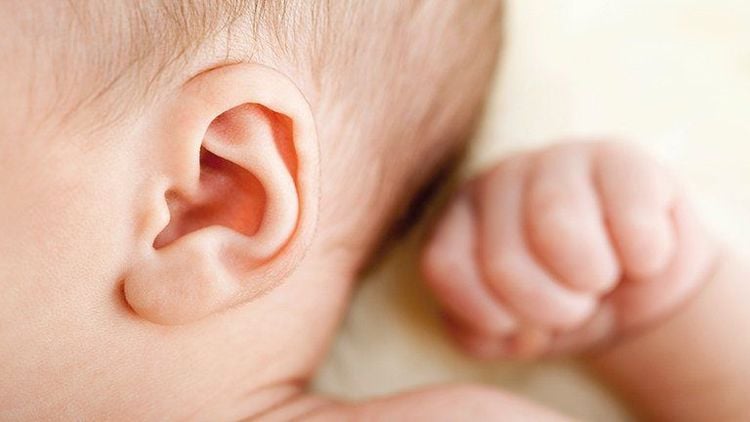
Delayed-onset hearing loss can occur for a number of reasons:
Illness Inherited Injury Frequent exposure to loud noises for long periods of time. That's why it's important to have your baby's postpartum hearing tested regularly, at every baby's health checkup. If parents suspect that their child has risk factors for developmental delays, or are concerned about their hearing ability, parents should take their child to specialists or an audiologist for further testing.
Newborn hearing screening is important and part of the newborn screening program. Whether the child passes or fails the test results, parents need to continue to monitor and recognize the warning signs of hearing loss in their children to promptly intervene and treat.
When a child shows abnormal signs of health, parents can take the child to Vinmec Health system for timely examination and treatment.
As a key area of Vinmec Health System, Pediatrics Department - Vinmec International General Hospital always brings satisfaction to customers and is highly appreciated by industry experts thanks to the following advantages:
gathers a team of leading doctors and doctors in Pediatrics: including leading experts, with high professional qualifications (professors, associate professors, doctorates, masters), experienced, having worked in different hospitals. Large hospitals such as Bach Mai, 108... The doctors are well-trained, professional, have a heart - reach, understand young psychology. In addition to domestic pediatric specialists, the Department of Pediatrics also has the participation of foreign experts (Japan, Singapore, Australia, USA) who are always pioneers in applying the latest and most effective treatment regimens. . Comprehensive services: In the field of Pediatrics, Vinmec provides a series of continuous medical examination and treatment services from Newborn to Pediatric and Vaccine,... according to international standards to help parents take care of their baby's health from birth to childhood. from birth to adulthood Specialized techniques: Vinmec has successfully deployed many specialized techniques to make the treatment of difficult diseases in Pediatrics more effective: neurosurgery - skull surgery, stem cell transplantation. blood in cancer treatment. Professional care: In addition to understanding children's psychology, Vinmec also pays special attention to the children's play space, helping them to have fun and get used to the hospital's environment, cooperate in treatment, improve the efficiency of medical treatment.
Please dial HOTLINE for more information or register for an appointment HERE. Download MyVinmec app to make appointments faster and to manage your bookings easily.
Reference source: babycenter.com.





